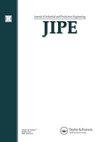考虑碳排放和食物浪费的生鲜电子商务供应链优化模型
IF 4.6
Q2 ENGINEERING, INDUSTRIAL
Journal of Industrial and Production Engineering
Pub Date : 2022-07-27
DOI:10.1080/21681015.2022.2099473
引用次数: 13
摘要
本研究有助于生鲜食品供应链系统,因为缺乏碳排放和减少食物浪费,这是以往的研究所忽视的。本研究考察了一个生鲜食品供应链系统,该系统包含多个农民、单个加工商、多个分销商、客户和多个周期。本文提出了一种混合整数线性规划方法,通过优化产品库存和交付来优化总采购、检验、食品浪费、包装、冷藏、运输和碳排放成本。该模型还被验证,以提供对相关行业的见解。结果表明:从经销商到客户的总配送成本、总采购成本和总包装成本分别为38.68%;25.87%;分别为16.84%。此外,敏感性分析表明,温度控制、碳惩罚成本和车型差异对总成本和排放有显著影响。此外,该研究还可以通过考虑这些参数的影响来指导决策者。图形抽象本文章由计算机程序翻译,如有差异,请以英文原文为准。
An optimization model for fresh-food electronic commerce supply chain with carbon emissions and food waste
ABSTRACT This study contributes to the fresh food supply chain system due to the lack of carbon emissions and food waste reduction that the prior studies neglected. This study examines a fresh-food supply chain system with multiple farmers, a single processor, multi-distributor, customers, and multiple periods. This paper presents a mixed-integer linear programming to optimize total purchasing, inspection, food waste, packing, cold storage, transportation, and carbon emission costs by optimizing product inventories and deliveries. The model is also validated to provide insights into relevant industries. The results show that the total distribution cost from distributor to customers, the total purchasing cost, and total packaging cost are 38.68%; 25.87%; and 16.84%, respectively. In addition, sensitivity analyzes show that the total costs and emissions are significantly affected by the variance in temperature control, carbon punishing cost, and vehicle types. Furthermore, this research can guide the decision-makers by considering the influence of these parameters. Graphical abstract
求助全文
通过发布文献求助,成功后即可免费获取论文全文。
去求助
来源期刊

Journal of Industrial and Production Engineering
ENGINEERING, INDUSTRIAL-
CiteScore
7.50
自引率
6.70%
发文量
21
 求助内容:
求助内容: 应助结果提醒方式:
应助结果提醒方式:


